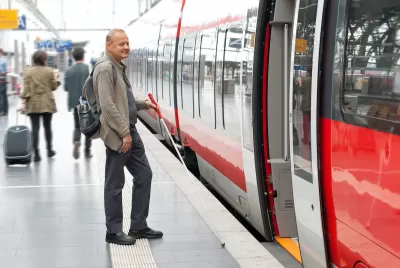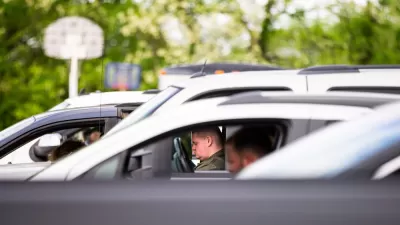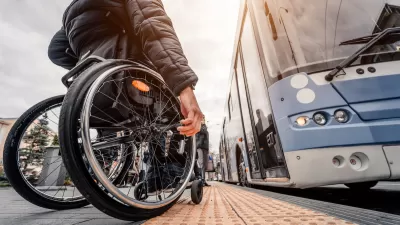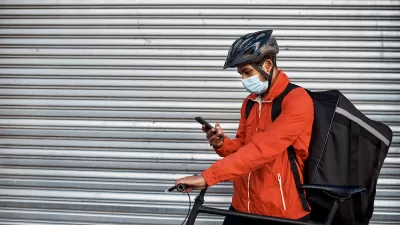People who are physically unable to drive can benefit from effective public transit systems and accessible, mixed-use neighborhoods.

The car-centric infrastructure that dominates most U.S. cities makes navigating the public realm more difficult for many groups, including people with disabilities.
As Matthew Rozsa explains in a piece on Salon, “there is a crucial difference between not driving for economic or ecological reasons — or, in extreme cases, due to legal consequences for crimes like driving while intoxicated — and not driving because your body makes the task physically impossible. In the latter scenario, being unable to drive isn't merely an inconvenience. It becomes another manifestation of a person's disability, and a particularly debilitating one at that.”
Zoe Gross, director of advocacy at the nonprofit Autistic Self Advocacy Network, told Salon in an email that “not being able to drive can significantly worsen a person's life, especially if they live in an area of the country with little or no public transportation.”
People who are unable to drive, regardless of their ability, can face discrimination in employment, education, healthcare, and other important areas. Advocates say supporting people with disabilities involves building robust public transportation systems and putting a stronger focus on accessibility in infrastructure and mobility projects.
FULL STORY: The hidden ways our car-obsessed culture is especially hard on disabled people

Alabama: Trump Terminates Settlements for Black Communities Harmed By Raw Sewage
Trump deemed the landmark civil rights agreement “illegal DEI and environmental justice policy.”

Planetizen Federal Action Tracker
A weekly monitor of how Trump’s orders and actions are impacting planners and planning in America.

The 120 Year Old Tiny Home Villages That Sheltered San Francisco’s Earthquake Refugees
More than a century ago, San Francisco mobilized to house thousands of residents displaced by the 1906 earthquake. Could their strategy offer a model for the present?

Ken Jennings Launches Transit Web Series
The Jeopardy champ wants you to ride public transit.

BLM To Rescind Public Lands Rule
The change will downgrade conservation, once again putting federal land at risk for mining and other extractive uses.

Indy Neighborhood Group Builds Temporary Multi-Use Path
Community members, aided in part by funding from the city, repurposed a vehicle lane to create a protected bike and pedestrian path for the summer season.
Urban Design for Planners 1: Software Tools
This six-course series explores essential urban design concepts using open source software and equips planners with the tools they need to participate fully in the urban design process.
Planning for Universal Design
Learn the tools for implementing Universal Design in planning regulations.
Clanton & Associates, Inc.
Jessamine County Fiscal Court
Institute for Housing and Urban Development Studies (IHS)
City of Grandview
Harvard GSD Executive Education
Toledo-Lucas County Plan Commissions
Salt Lake City
NYU Wagner Graduate School of Public Service





























